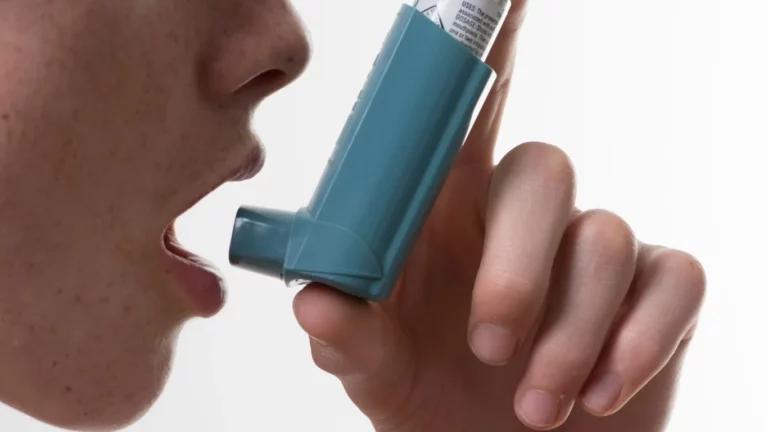Managing Asthma in Older Adults: A Comprehensive Guide
Asthma management in older adults requires a personalized approach that factors in age-related changes, other medical conditions, and the right treatments. Here’s everything you need to know to stay in control of asthma as you age.
Why Asthma in Older Adults Is Different
Asthma in older adults presents unique challenges. As we age, the lungs undergo changes that can affect their ability to function properly. This can lead to increased sensitivity to asthma triggers, making it harder to control symptoms. In addition, older adults often have other health issues such as heart disease, diabetes, or arthritis, which can complicate asthma management. Medications used for other conditions may also interact with asthma treatments, so careful coordination with healthcare providers is crucial.
Also, older adults may not always recognize the signs of asthma flare-ups or may confuse asthma symptoms with other age-related health issues like pneumonia or heart problems. This is why it’s important to have an asthma action plan in place and communicate openly with your healthcare team.

Common Symptoms of Asthma in Older Adults
Asthma symptoms in older adults can be tricky because they might overlap with symptoms of other conditions, but the typical signs include:
- Wheezing: A high-pitched sound when breathing, especially when exhaling.
- Shortness of breath: Feeling out of breath during physical activity or even while resting.
- Chest tightness: A feeling like something is squeezing your chest.
- Coughing: Particularly at night or early in the morning.
If you’re an older adult and notice any of these symptoms, it’s important to seek medical attention promptly. Early diagnosis and treatment can make a big difference in managing asthma effectively.

Key Strategies for Managing Asthma in Older Adults
Managing asthma in older adults involves a combination of medication, lifestyle changes, and careful monitoring. Here are some key strategies to ensure you stay on top of your asthma management:
1. Medication Adherence Is Key
One of the most important aspects of asthma management is ensuring that medications are taken as prescribed. Asthma medications typically fall into two categories:
- Reliever medications (like short-acting beta-agonists) provide quick relief during asthma attacks.
- Controller medications (such as inhaled corticosteroids) are used regularly to prevent asthma symptoms from occurring in the first place.
As we get older, our ability to manage multiple medications may decline, so it’s important to set reminders or even have a caregiver help with medication management. There are also combination inhalers available that simplify the regimen by combining both types of medications.
2. Know Your Triggers
Asthma triggers can vary from person to person, and older adults may experience more triggers as they age. Common asthma triggers include:
- Allergens: Dust mites, mold, pet dander, and pollen.
- Air pollution: Smoke, smog, and strong odors can make breathing more difficult.
- Respiratory infections: Cold and flu viruses can lead to serious flare-ups in people with asthma.
- Physical activity: While exercise is important, it’s essential to warm up slowly and avoid strenuous activities during asthma flare-ups.
Older adults should work with their healthcare providers to identify and avoid these triggers whenever possible. This might mean keeping the home clean from allergens, staying indoors when air quality is poor, or taking extra precautions during flu season.

3. Monitor Lung Function Regularly
Using a peak flow meter can help you monitor how well your lungs are working. This device measures how fast you can exhale air, which helps track the severity of your asthma and can alert you to any worsening symptoms. Regular monitoring of lung function is especially crucial for older adults, as early signs of a decline in lung capacity may not be as noticeable as they would be in younger individuals.
4. Exercise and Physical Activity
Exercise is important for everyone, including older adults with asthma. Regular physical activity helps improve lung capacity, strengthens the heart, and keeps you in good shape overall. However, it’s important to consult with your doctor about what types of exercise are safe and beneficial. Activities like walking, swimming, and yoga are generally asthma-friendly and can be done at a comfortable pace.
Before exercising, ensure that asthma medications (such as inhalers) are on hand in case you need them. It’s also a good idea to warm up before exercise and cool down afterward to prevent asthma flare-ups.
5. Regular Check-ups with Healthcare Providers
Older adults with asthma should have regular check-ups with their healthcare providers. This helps ensure that asthma medications are still effective, that there are no new asthma triggers, and that other health conditions are being managed properly. Additionally, during these visits, you can discuss any concerns you have regarding your asthma or other health issues, and adjustments to your treatment plan can be made as needed.

6. Maintain a Healthy Diet
A well-balanced diet is important for overall health, and it can also help manage asthma symptoms. Certain nutrients, like vitamin D, omega-3 fatty acids, and antioxidants, may help reduce inflammation in the lungs. Being overweight can also worsen asthma symptoms, so maintaining a healthy weight is essential.
Older adults should consult with their healthcare provider about nutrition, especially if they have other medical conditions like diabetes or heart disease.
7. Stay Hydrated
Staying hydrated helps thin mucus in the airways, making it easier to breathe. In older adults, dehydration can worsen asthma symptoms, so it’s important to drink enough water throughout the day, particularly during hot weather or if you’re physically active.
Appendices
References
- American Lung Association. (2023). Understanding Asthma in Older Adults. Read Article
- National Heart, Lung, and Blood Institute. (2024). Asthma in Older Adults. Read Article
- National Institutes of Health. (2022). Asthma Management Guidelines. Read Article
FAQs
- What makes asthma different in older adults? Asthma in older adults can be complicated by other chronic health conditions, and symptoms may overlap with conditions like heart disease or pneumonia.
- Can asthma in older adults worsen over time? Yes, asthma can worsen with age due to changes in lung function, and older adults may experience more frequent or severe symptoms.
- What treatments are recommended for older adults with asthma? Older adults often use a combination of inhalers, both long-term controller medications, and quick-relief medications, depending on their symptoms and health conditions.
- How can older adults prevent asthma attacks? Preventing asthma attacks involves identifying triggers, avoiding them, adhering to medication schedules, and getting regular check-ups.
- Is exercise safe for seniors with asthma? Yes, exercise can improve lung capacity, but it’s important to choose activities that are gentle and suitable for asthma, like walking, swimming, or yoga.
Disclaimer
The content of this article is intended for informational purposes only and should not be considered as medical advice. Always consult with your healthcare provider before making any changes to your asthma management plan or lifestyle.

Bianca Nala is a compassionate Nurse Practitioner with a strong background in primary and respiratory care. As a health writer for Healthusias.com, she combines her clinical expertise with a talent for clear, relatable storytelling to help readers better understand their health. Bianca focuses on topics like asthma, COPD, chronic cough, and overall lung health, aiming to simplify complex medical topics without losing accuracy. Whether she’s treating patients or writing articles, Bianca is driven by a single goal: making quality healthcare knowledge accessible to everyone.







